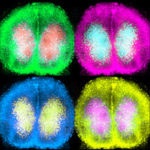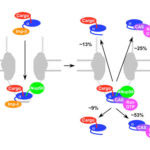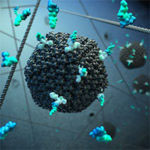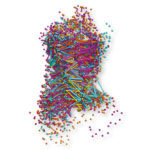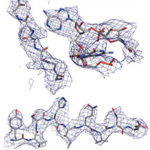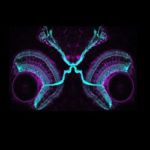
Work in Leon Lagnado’s group in the LMB’s Neurobiology Division is showing how synapses transmit visual signals in the retina of zebrafish. The group designed fluorescent proteins that light up when synapses are active and made transgenic zebrafish expressing these proteins in retinal neurons. They then used a multiphoton microscope to directly observe the activity of synapses in the retina of live fish as they responded to different visual stimuli.
